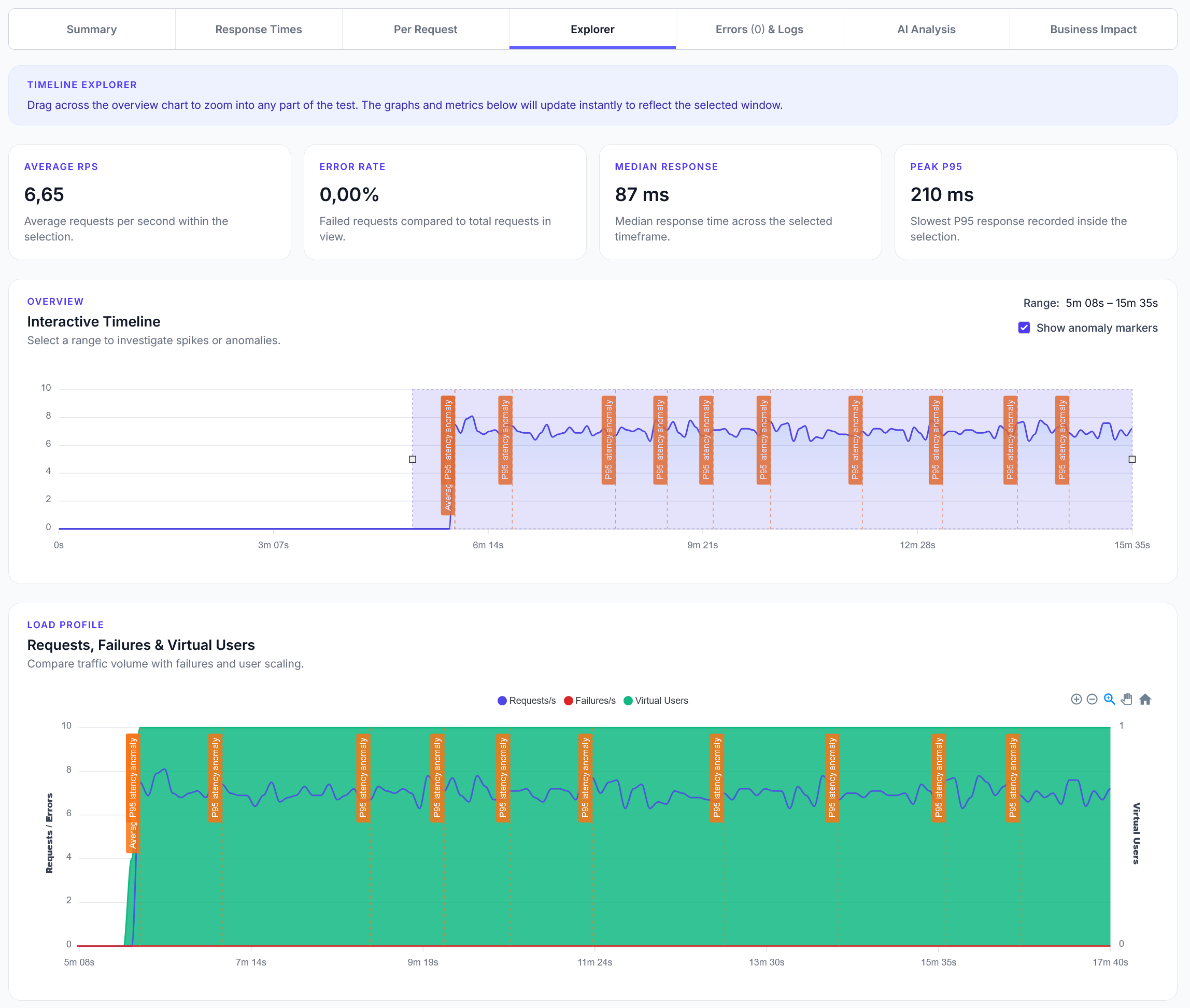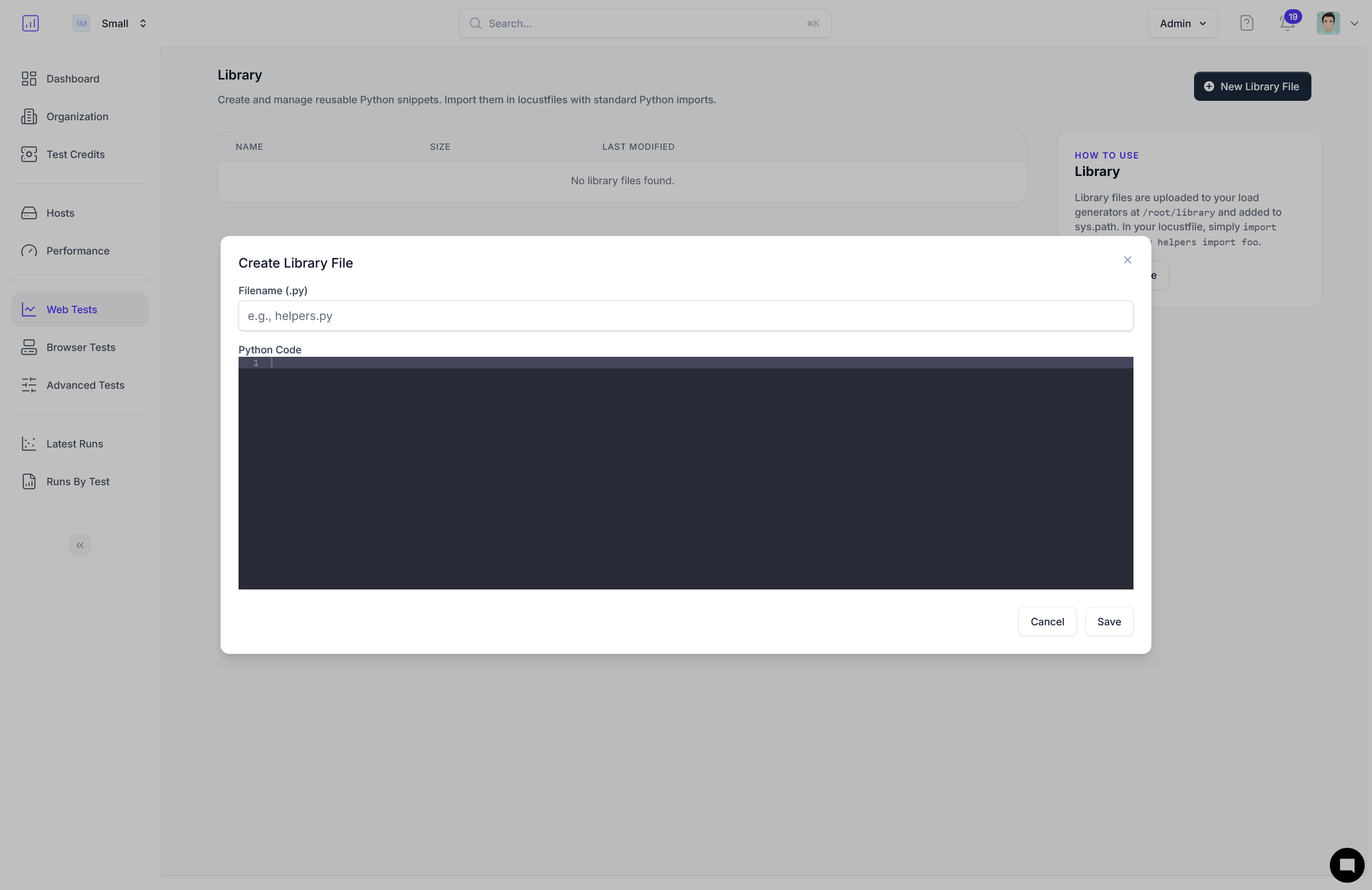
Explorer reports addition
We have added a new Explorer feature to reports, with a timeline scrubber and easy anomaly detection.
TLDR: The LoadForge Library enables creating reusable Python modules to streamline Locust tests, promoting consistency, speed, and reliability by centralizing helper functions which can be easily imported and auto-synced across various projects and teams.

Writing the same Python helpers across multiple Locust tests is brittle and slow. The Library lets you create shared Python modules—small, reusable functions you can import across all your tests—to keep your performance suite DRY and consistent.
/root/librarysys.path, so you can import with standard Python importsIn the UI, click “New Library File,” name it (e.g., helpers.py), edit code with syntax highlighting, then Save. You can edit or delete files anytime; updates are picked up on the next run.
/root/library and are on sys.pathlocustfile.py with standard Python imports# helpers.py (Library)
import random, string
def random_email(domain="example.com"):
local = ''.join(random.choices(string.ascii_lowercase, k=10))
return f"{local}@{domain}"
# locustfile.py
from locust import HttpUser, task
from helpers import random_email
class WebsiteUser(HttpUser):
@task
def signup(self):
email = random_email()
self.client.post("/signup", json={"email": email, "password": "secret123"})
auth.py, data.py, checks.pyFor details, see the docs: Library in LoadForge
LoadForge Team
The LoadForge Team